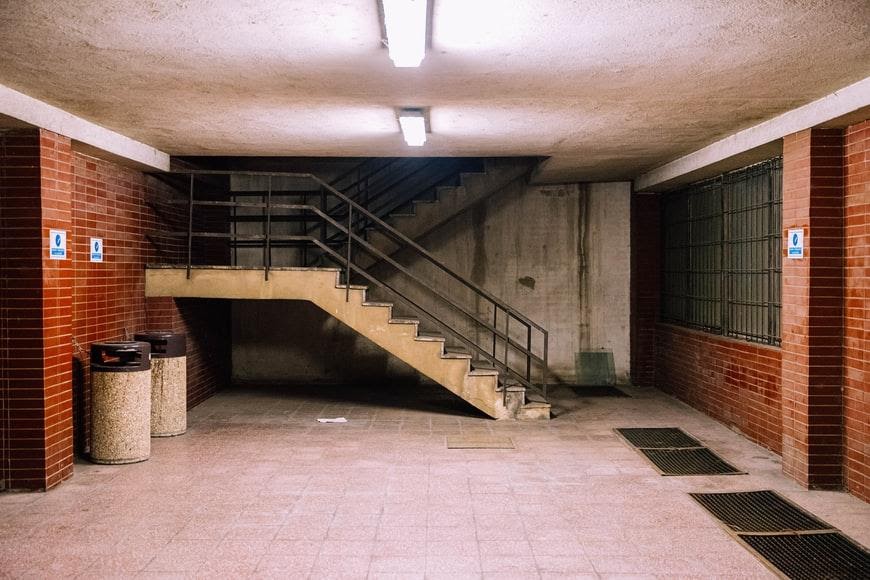To Increase the value of a building, most house owners in New York City convert the basements in their residential buildings to dwelling units. Because of the safety concerns associated with basement and cellar conversions in NYC, there are legalities involved in renting them out.

A basement apartment
Source: https://unsplash.com/photos/Z8juMgV5FBE
Here are details about basement and cellar conversions in New York City:
Basement Apartments New York City
A basement apartment is the part of a building that is partially below the curb level but has at least half of its height above it. These units supplement New York City’s already inadequate housing stock while offering tenants a more budget-friendly rental choice.
It is noteworthy that you cannot just renovate and convert your basement/cellar without the required permits. The Department of Buildings ensures standards that maintain tenant safety and standard of living.
A basement apartment must fulfill the following requirements before it can be legal to rent. It’s important to note that these are just some of the general requirements and additional rules apply to specific situations.
- Conformity with the Housing Maintenance Code for minimum room size.
- The minimum height of the ceiling is 7ft.
- The walls must be damp- and waterproofed up to ground level.
- Every room of the apartment must have at least a window.
- Fifty percent of the window should be above street level.
- Any yard or other needed open space must be at least six inches lower than the window sill of any required window in the adjacent rooms.
- Multiple exits in case one is blocked by fire.
- The basement floor must be classified by the Department of Buildings as a separate dwelling unit, independent from the other dwelling units in the building.
Cellars New York City
A cellar is a floor that is more than half below the curb level. It is illegal to rent out all cellars as dwelling units in New York City and it can’t have bedrooms, living rooms, kitchens, dining rooms, and other similar spaces. However, it doesn’t mean that cellars can only be used as mechanical and utility rooms. Homeowners can renovate their cellars to create finished open spaces for storage, power rooms, and, in some cases, full bathrooms.
Dangers of Renting Illegal Basement and Cellar Conversions in New York City

A basement
Source: https://unsplash.com/photos/GVMCvjF6tuU
Residents of illegal basement and cellar apartments may be at risk of the following dangers:
- Carbon monoxide poisoning
- Poor ventilation
- Insufficient exit.
The City has the authority to require occupants of the unlawful basement and cellar apartments to vacate such floors. In addition, property owners who violate the basement and cellar rental laws can receive heavy fines.
However, not all NYC basement flats are unlawful. To help alleviate the housing shortage, the HPD created a pilot program called Basement Apartment Conversion Pilot Program (BACPP) to grant cash to building owners to convert their basement flats into safe, legal, and economical rentable dwellings.
The city’s building rule on minimum ceiling heights and window sizes in basement residences was also altered as part of the new statute that authorized the pilot program. Unfortunately, the BACPP is very restricted and most of the homeowners will not qualify. For the details and requirements about the Basement Apartment Conversion Pilot Program, check the official website here.
Conclusion
Now that you know the rules guiding basement and cellar conversions in New York City, if you are thinking of renting a basement apartment, be sure it is legal and safe. Otherwise, you may end up evicted after a random inspection or suffer worse consequences like flooding.
On the other hand, property owners too should consult a registered architect to bring their basement apartments up to standard. If you need assistance with legalizing your basement apartments, contact us and we will be happy to help. We offer impeccable property violation removal services in New York City.